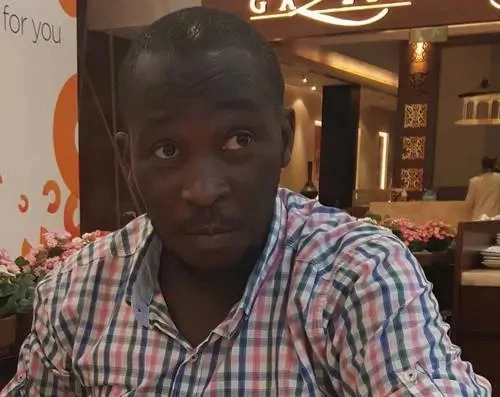There are no products in your shopping cart.
| 0 Items | £0.00 |

 BOKO Haram expert and journalist Ahmad Salkida has revealed that only 15 out of the 115 Government Girls Secondary School (GGSS) Chibok pupils still being held by Boko Haram are still alive.
BOKO Haram expert and journalist Ahmad Salkida has revealed that only 15 out of the 115 Government Girls Secondary School (GGSS) Chibok pupils still being held by Boko Haram are still alive.
In April 2014, Boko Haram abducted 276 girls from their boarding school in Borno State in the middle of the night and despite a worldwide campaign to secure their release, have refused to budge. Some of the girls escaped, however, and last year, Boko Haram released some of them following negotiations with the federal government but 115 pupils are still being held in captivity.
According to Boko Haram, the girls still being held have been married off to some of its commanders and are happy to remain with them. In a shocking revelation, however, Mr Salkida said that most of the girls Boko Haram claims it is still holding are no longer alive, adding that many of them had died in battles between the Nigerian military and the insurgents.
Earlier today, Mr Salkida, who was once declared wanted by the military over his alleged connection to Boko Haram militants, revealed that the terrorist sect had wanted the then government under Goodluck Jonathan to swap its detained members with the abducted girls but the deal hit the rocks. He said his efforts to seal the deal were truncated at the eleventh hour by the then chief of defence staff.
Mr Salkida added: “Four years ago, a middle ranking Boko Haram commander led dozens of fighters in search of food and other supplies in the remote town of Chibok, like an afterthought, they saw a chance to abduct school girls in GSS Chibok, the girls at the time were preparing for their exams. The dozens of Boko Haram fighters faced no opposition during the abduction, as they struggled to convey their captives to the forest of Alagarno, the insurgent’s first war capital, which they named Timbuktu.
"It was in Timbuktu that they organised most of the horror we experience today. Some of the girls were lucky to have escaped on their way to Timbuktu that night because there were few fighters to hold more than 200 girls.
"At the beginning, the group didn’t know what to do with the girls, at least, not in the first one month of their captivity. However, what many people did not know was that two weeks into the abduction, the Jonathan administration was already in touch with me for the peaceful release of the girls and by the way, I was in self-exile after pressure from the same government.
“I took an excuse where I was doing a menial job in the UAE to see the president, which was facilitated by Aliyu Gebi and Labaran Maku. By the third of May, I was already on my way from Abuja to Madagali, Marwa and finally to a Boko Haram camp.
"The demands of Boko Haram then were simple, they wanted detained members taken to Damaturu and they will move the girls to Buniyardi for swap somewhere in between. There was no word on ransom. I was provided with full military escort from Abuja to Damaturu and the government was supposed to make sure that 70 detainees were ready on my arrival in Damaturu to meet 30 there, while the rest of the negotiating team was in Abuja making sure the prisoners were on a plane before my arrival.”
He pointed out that he was shocked on getting to Damaturu, the Yobe State capital, only to discover that the detained Boko Haram members were not on ground for the swap deal. According to Mr Salkida, Boko Haram members were angry and so he returned to the UAE but received invitations not only by the former administration but the current government too.
On the fate of the kidnapped girls, Mr Silkida said many of them were dead, while those alive have been married off. He added that many of the girls have died as a result of cross fire and bombardments by the security forces that were intent on rescuing them.
According to Mr Salkida, the girls were no longer under the custody of the Boko Haram factional leader Abubakar Shekau. On the way out for the girls, he opined that the military should rescue or negotiate with individual captors to release their wives in return for some kind of deal.